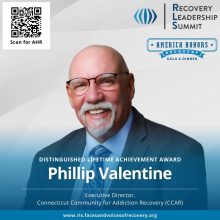I was fascinated by Wendy Dossett’s interview with my colleague Wulf Livingston, in particular the discussions around the 12-Step Fellowship. Her research has provided some important insights into the 12-Step Fellowship. The film below follows on from an earlier one of Wendy’s that I have posted, The Nature of Addiction, where she describes acknowledging her own powerlessness over her addiction.
Wendy describes powerlessness as being a central concept in 12-step fellowships such as Alcoholics Anonymous (AA). It is argued that if control of substance use is beyond your own willpower, then there has to be some other power that is going to bring about abstinence. For example, step 1 states ‘We admitted we were powerless over alcohol…’, whilst step 2 states ‘Came to believe that a Power greater than ourselves could restore us to sanity.’

 ‘Recovery Rising is the professional memoirs of William (Bill) L White who, over the span of five decades, evolved through several diverse roles to emerge as the addiction fields preeminent historian and one of its most visionary voices and prolific writers.’
‘Recovery Rising is the professional memoirs of William (Bill) L White who, over the span of five decades, evolved through several diverse roles to emerge as the addiction fields preeminent historian and one of its most visionary voices and prolific writers.’ In a
In a  My second interview with James Deakin, Founder of North Wales Recovery Communities (NWRC), took place on 16 June 2023. It involved Perth, Western Australia, linking up with Bangor, North Wales, on Zoom, with a seven-hour time difference. I edited
My second interview with James Deakin, Founder of North Wales Recovery Communities (NWRC), took place on 16 June 2023. It involved Perth, Western Australia, linking up with Bangor, North Wales, on Zoom, with a seven-hour time difference. I edited  In an interview with my Recovery Voices colleague Wulf Livingston, he talks about his early hedonistic drug and alcohol use, life as a successful chef, and qualification as a social worker. He then worked with the drug and alcohol charity Lifeline, the drug treatment charity CAIS in North Wales, and the Probation Service.
In an interview with my Recovery Voices colleague Wulf Livingston, he talks about his early hedonistic drug and alcohol use, life as a successful chef, and qualification as a social worker. He then worked with the drug and alcohol charity Lifeline, the drug treatment charity CAIS in North Wales, and the Probation Service. A huge congratulations to Phil Valentine of Connecticut Community of Addiction Recovery (CCAR), who recently received a Distinguished Lifetime Achievement Award from
A huge congratulations to Phil Valentine of Connecticut Community of Addiction Recovery (CCAR), who recently received a Distinguished Lifetime Achievement Award from 